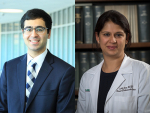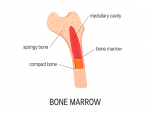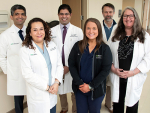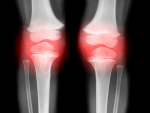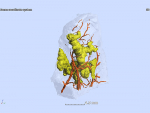Displaying items by tag: department of medicine
Experts say it is never too late for women to know their risk factors and take steps to prevent heart disease.
Tagged under
The research team analyzed the clinical outcomes of more than 12,000 patients who had a TEE-guided percutaneous transcatheter intervention and found that, over the past decade, 3.6 percent of patients who had this procedure had complications.
Basic research in bacteria has led Michael Niederweis and Moon Nahm to 17 U.S. patents and various new technologies with real impacts on the welfare of society.
Tagged under
Tagged under
Hold onto your stomachs, folks. Norovirus is back and ready to spoil the party with its infamous symptoms.
Tagged under
Tagged under
Many with diabetes might get overwhelmed or experience burnout. Follow these five self-care diabetes tips from the UAB Comprehensive Diabetes Center to show yourself some love this February.
Tagged under
An overabundance of mast cells, which are important components of the immune system and are produced in the bone marrow, can lead to a variety of health issues.
Tagged under
Sarcoidosis is an inflammatory disease characterized by the formation of granulomas in one or more organs of the body.
Tagged under
A nationwide study led by UAB researchers showed that cardiovascular health in young adults did not improve from 2007-2018 and only one in four people in that age group have ideal cardiovascular health.
Tagged under
UAB experts offer tips on preventive steps you can take to stay healthy and avoid a visit to the emergency department.
Tagged under
UAB Hospital practice areas were honored with the “Best Hospital” designation, including cancer care, bariatric surgery, heart care, stroke care, minimally invasive surgery, comprehensive breast care, mammograms, obstetrics and women’s services.
Tagged under
Watching the portion and carb content of food and drinks can help prevent blood sugar spikes this New Year’s Eve.
Tagged under
The spinoff company, IN8bio Inc., uses proprietary drug-resistant immunotherapy licensed in part from UAB. Glioblastoma is the most aggressive type of cancer originating in the brain.
Tagged under
Precision medicine approach may identify those at high genetic risk of hypertension, heart failure, stroke and heart attacks and use precision medicine to help prevent fatal cardiovascular diseases.
Tagged under
The first large multi-ancestry genetics study of osteoarthritis, or OA, has found 10 novel OA-associated genetic loci, and results showed some of the OA-associated regions are robustly found in every population ancestry studied.
Tagged under
- release
- school of medicine
- department of medicine
- department of surgery
- department of cell developmental and integrative biology
- division of pulmonary allergy and critical care medicine
- school of public health
- department of epidemiology
- department of genetics
- department of biostatistics
- public health research
Cardiac intelligence uses artificial intelligence to monitor patients for cardiac disease and progression.
Tagged under
Insights that are not possible with conventional two-dimensional platforms include characterization of obliterated airways in tuberculosis and hemorrhage from ruptured blood vessels in COVID-19 lungs, at near-microscopic levels.
Tagged under
New screening guidelines and improvements in diagnostics and treatment have improved outcomes in lung cancer.
Tagged under
UAB researchers have published an article demonstrating how the term “aggressive care,” used loosely by clinicians to describe care that can negatively impact quality of life for patients with serious illness, is often used to inappropriately label the preferences of African American patients.
Tagged under

